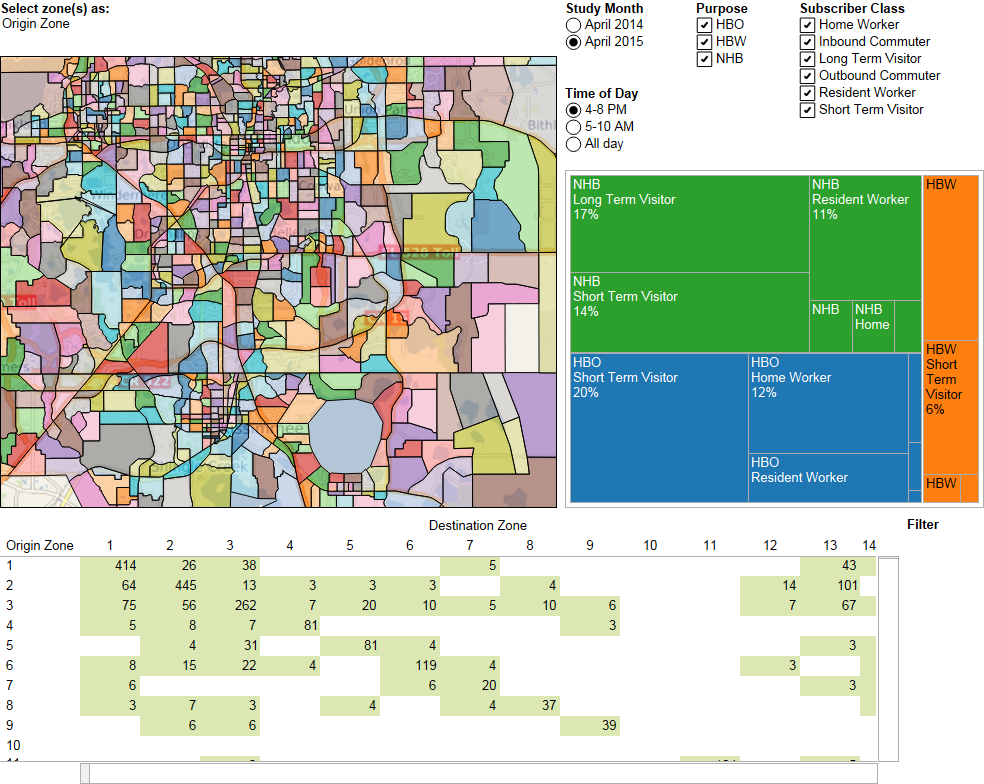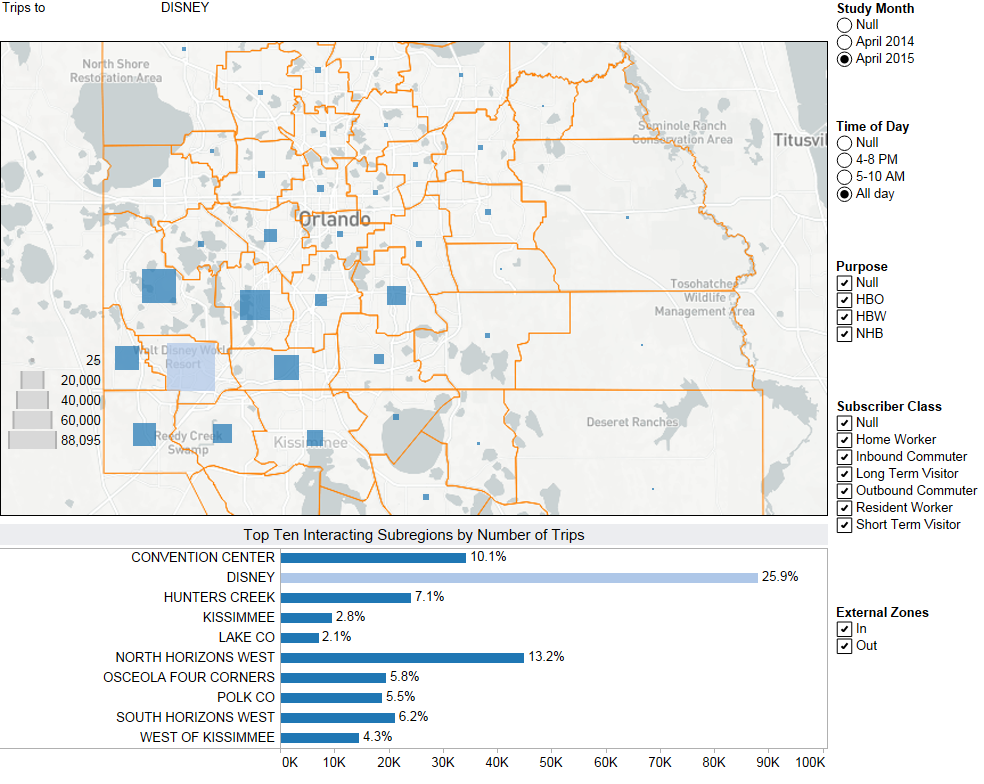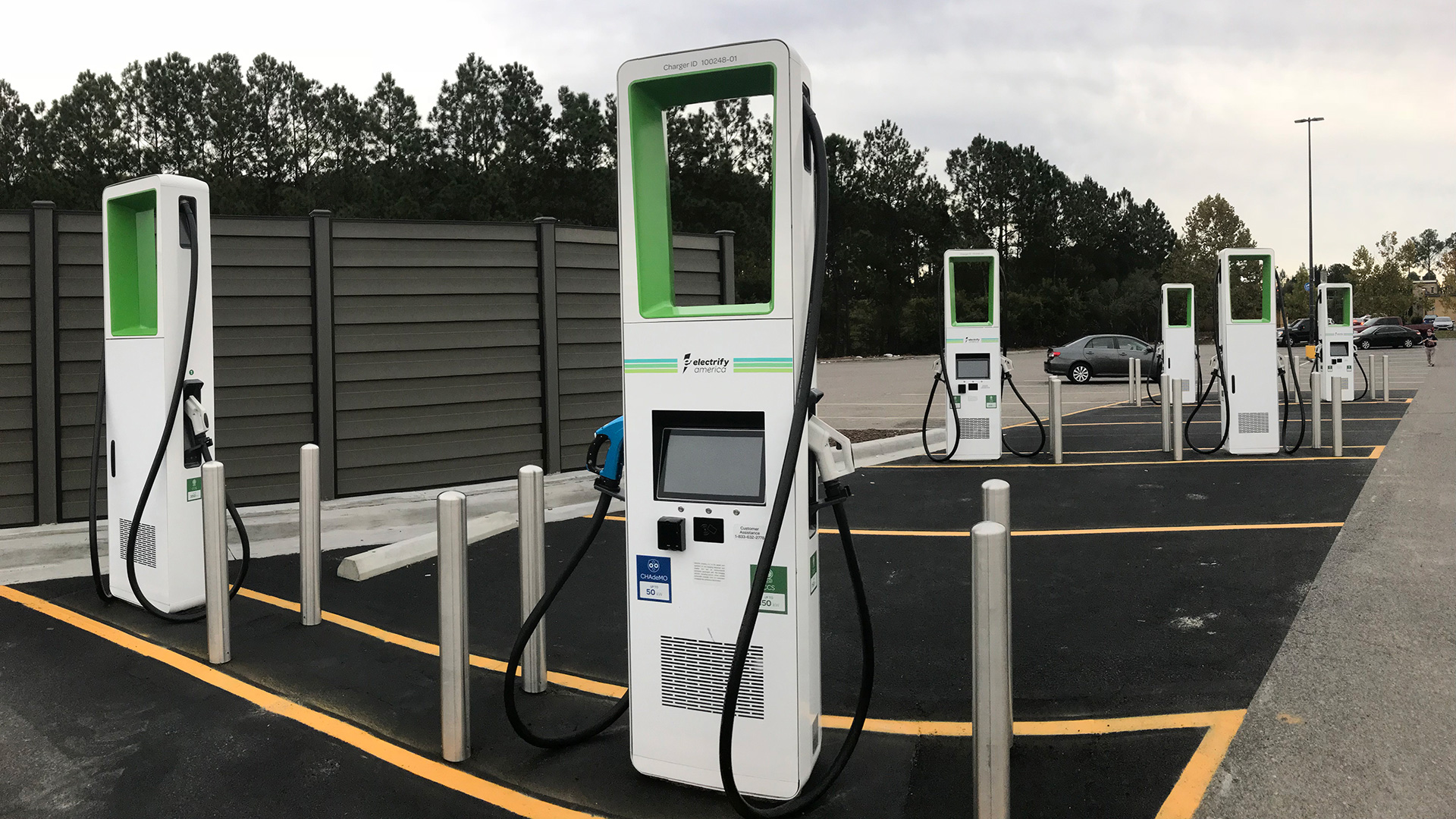Challenge
Emergent data sources – some consisting of millions of rows of data – increasingly are being used for regional planning purposes. With the recent acquisition of an AirSage database, MetroPlan Orlando wanted to be able to mine and analyze its own travel data in order to better answer complex planning questions.
Solution
Kittelson compiled a comprehensive metadata document in collaboration with AirSage to understand the potential and limitations of the data. We then created an interactive dashboard to help MetroPlan analyze the data and extract desired subsets, and developed case studies to show how AirSage data could be used to support MetroPlan’s planning tasks.

MetroPlan Orlando Dashboard

MetroPlan Orlando Origin-Destination Dashboard
Kittelson has supported MetroPlan staff on various transportation planning projects related to MetroPlan Orlando’s Unified Planning Work Program (UPWP). The Travel Data Program – one of these projects – synthesized information from MetroPlan’s recently acquired AirSage database to explore how origin-destination datasets could best be managed for trend tracking, and to identify various types of analyses that could help support MetroPlan Orlando’s transportation planning and decision making. Recent analysis included identification of travel patterns among subregions, identification of activity centers, and understanding of changes in travel patterns based on before and after conditions of major infrastructure investments, including SunRail and the I-4 expansion.
The Outcome
Bringing Big Data into Regional Planning
MetroPlan Orlando is now using data synthesized by the Travel Data Program to support its regional planning efforts, including corridor studies and travel demand modeling. The program has allowed MetroPlan staff to analyze travel data, rather than having to engage consultants to do so.



